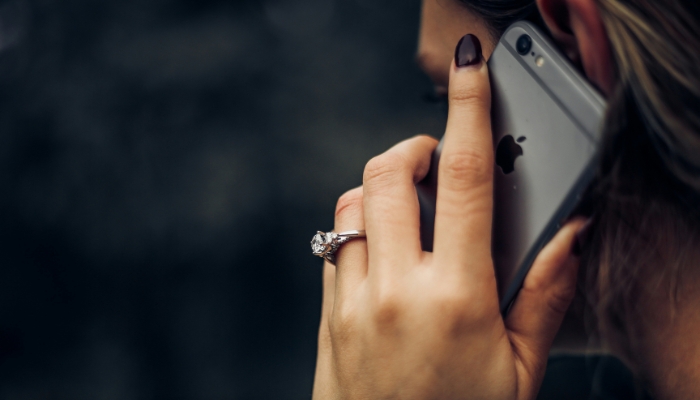
Carriers verifying calls is a critical aspect of modern telecommunication, aimed at enhancing security and user experience. This practice addresses concerns like spam, fraud, and identity theft, which have become increasingly prevalent with the advancement of technology.
Carriers verify calls primarily to protect their customers from fraudulent activities and unwanted spam. By implementing call verification, carriers can ensure the authenticity of the caller, reducing the risk of scams and phishing attempts. This process also helps in maintaining the integrity of their network and providing a safer communication environment for users.
Identingly can be a valuable tool in understanding the effectiveness of call verification by carriers. By offering services like reverse phone lookup, Identingly helps users identify unknown callers, thereby complementing the carriers’ efforts in call verification. This enhances overall phone security and user confidence in handling incoming calls.
To better understand and appreciate the importance of call verification by carriers, users can utilize platforms like Identingly. By staying informed and using available tools to identify and report suspicious calls, users can contribute to a more secure telecommunication environment. Always be vigilant and proactive in verifying unknown calls, and rely on trusted services for added security.
Understanding Call Verification
To fully grasp the concept of call verification, you must first understand that it’s a process carried out by carriers to authenticate and validate the identity of the caller, aiming to prevent fraudulent activities and ensure the security of communication. Verification technology is a key player in this process, enhancing caller ID reliability.
When you make international calls, the call verification process becomes even more crucial as it deters potential cross-border fraudulent activities.
However, like any other technology, call verification isn’t flawless. Verification limitations exist, and these could pose significant challenges. One such limitation is the potential for misidentification issues. Misidentification usually happens when the system inaccurately verifies a caller’s identity, leading to possible security breaches or false alarms. These issues can cause unnecessary panic and confusion, potentially undermining the overall goal of ensuring secure communication.
Moreover, the effectiveness of call verification can be significantly hindered by factors such as outdated systems, lack of international regulatory standards, and the ever-evolving tactics employed by fraudsters. Despite these challenges, the role of call verification in enhancing secure communication can’t be overstated. It’s a crucial tool in the quest to safeguard telecommunications integrity.
The Rise of Phone Scams
While the call verification process is instrumental in countering fraudulent activities, it’s the alarming increase in phone scams that underscores its absolute necessity. Phone scams have become a global issue, preying on the vulnerable and uninformed.
You can’t ignore the latest scam trends. They’re becoming more sophisticated, making scam identification a challenge. From fake tech support to IRS impostors, the range of tactics is ever-expanding.
Here’s what you need to know:
- Victim stories: Everyone from your elderly neighbor to a tech-savvy teenager can fall prey. Scammers often deploy emotional manipulation or urgent demands to trap victims.
- Scam prevention: Awareness is key. Never share personal information over the phone unless you’re sure of the caller’s authenticity.
- Government regulations: Regulations like the Truth in Caller ID Act aim to combat these scams. However, enforcement remains a challenge due to the global nature of these crimes.
- Latest scam trends: Stay informed about the latest scams. This includes ‘neighbor spoofing’ where scammers manipulate caller ID to mimic local numbers, increasing their chances of success.
In this era of rising phone scams, carriers verifying calls isn’t just a security measure, it’s a lifeline.
Reasons for Call Verification

Preventing Fraud and Scams
One of the primary reasons carriers verify calls is to prevent fraud and scams. With the rise of technology, fraudulent activities like identity theft, phishing calls, and scamming have become more common. Carriers use call verification to identify and block these malicious calls. By verifying the caller’s identity, carriers can prevent fraudsters from impersonating others and protect their customers from being scammed.
Ensuring Call Quality and Reliability
Another critical reason for call verification is to ensure the quality and reliability of calls. Carriers aim to provide clear and uninterrupted communication services to their customers. Call verification plays a significant role in this by filtering out spam and robocalls, which can congest networks and degrade the quality of service. When calls are verified, customers experience fewer disruptions and better overall call quality.
Regulatory Compliance and Legal Requirements
Carriers also verify calls to comply with various regulatory and legal requirements. Governments and regulatory bodies often set standards and laws to protect consumers from fraudulent calls and ensure their privacy. By verifying calls, carriers adhere to these regulations and avoid legal complications. This not only helps in maintaining a trustworthy relationship with their customers but also ensures that they operate within the legal framework.
Protecting Consumer Privacy
Call verification is essential in protecting consumer privacy. In an age where personal information is highly valuable, ensuring that calls are from legitimate sources is crucial. Carriers use verification methods to safeguard their customers’ personal information from being accessed or misused by unauthorized parties. This way, consumers can feel secure knowing that their private information is not at risk during their calls.
Enhancing User Experience
Lastly, call verification enhances the overall user experience. By ensuring that only legitimate calls reach consumers, carriers reduce the number of unwanted and annoying calls. This leads to a more pleasant and efficient communication experience for the user. Verified calls also instill a sense of security and trust in the service provider, improving customer satisfaction.
In conclusion, carriers verify calls for various reasons, including preventing fraud, ensuring call quality, complying with regulations, protecting consumer privacy, and enhancing user experience. This process is vital in today’s digital age to maintain the integrity and reliability of communication services.
How Call Verification Works?

Understanding how call verification works is crucial in our fight against phone scams. It begins with carriers employing advanced technologies and protocols to confirm the caller’s identity before the call reaches your phone. This process is powered by verification technology, a system that cross-checks a caller’s number with a database of known numbers, ensuring the call isn’t originating from a scammer or fraudulent source.
Caller identification is the first line of defense. Once a call is made, the carrier checks the caller’s number against a database of verified numbers. If the number isn’t recognized, the call may be blocked or flagged for your attention.
To further enhance fraud prevention, carriers also use voice biometrics, a technology that analyzes the unique characteristics of a person’s voice. This makes it harder for scammers to spoof numbers and impersonate others.
Role of Carriers in Call Verification
Carriers play a pivotal role in call verification, acting as gatekeepers by ensuring that only authenticated calls reach your phone. They implement verification technologies with precision, enhancing carrier user trust while adhering to global verification practices.
Here’s a breakdown of their responsibilities:
- Carrier Responsibilities: They’re responsible for maintaining the integrity of the communication channels. This includes authenticating calls, detecting spoofing attempts, and blocking fraudulent calls.
- Verification Technologies: They leverage advanced technologies such as STIR/SHAKEN protocols to authenticate caller identities. These technologies help to verify the caller’s number and location, making it difficult for scammers to impersonate others.
- Carrier User Trust: By diligently verifying calls, carriers help to build user trust. You can be confident that the calls you receive are legitimate, thereby reducing the risk of falling victim to phone scams.
- Regulation Impact: Carriers also comply with regulations such as the TRACED Act in the U.S., which mandates call verification. These regulations impact how carriers operate and emphasize their role in safeguarding communication channels.
Understanding the role of carriers in call verification gives you a clearer picture of their efforts to ensure secure, trusted communication – a cornerstone of modern telecommunication.
Call Verification and User Privacy
In the realm of call verification, protecting user privacy is an equally important consideration that carriers must navigate with utmost precision. Privacy implications are far-reaching; any oversight may lead to dire consequences including breach of trust, regulatory penalties, or even lawsuits.
A key component of user privacy is data protection. Carriers must employ robust security measures to safeguard user data from unauthorised access or misuse. This includes using advanced encryption technologies, regular security audits, and implementing stringent data handling protocols.
User consent is another crucial aspect. Carriers must ensure that users are fully informed about the verification process and the associated data usage. This ensures verification transparency, a vital element in maintaining user trust and confidence.
Privacy regulations vary across regions, and carriers must stay abreast of these changes. Complying with these regulations not only safeguards the user’s privacy rights but also shields carriers from potential legal complications.
Advantages of Call Verification
When you consider One of the primary reasons carriers verify calls is to prevent fraud and phone scams. Verification, the first that comes to mind is its role in bolstering security by combating fraudulent activities and potential identity theft. This enhanced security measure verifies the caller’s identity, reducing the risk of impersonation and unauthorized access to sensitive information.
By implementing call verification, you gain:
- Enhanced Security: Call verification adds an extra layer of security to protect against unauthorized access.
- Fraud Prevention: By verifying the caller’s identity, you can prevent fraudulent activities before they happen.
- Customer Trust: Customers appreciate businesses that prioritize their security. Knowing their information is protected helps build trust.
- Business Credibility: A business that uses call verification is seen as credible and trustworthy.
In addition to these advantages, call verification also offers identity protection. This is especially crucial in our digital age where identity theft is rampant. By using call verification, you’re not only protecting your business, but also your customers’ identities.
Future of Call Verification in Telecommunication

As we look to the future, it’s essential to consider how call verification will evolve in the telecommunication industry. Verification technology is advancing at a rapid pace, paving the way for comprehensive telecommunication security.
The verification evolution is gearing towards more secure and efficient methods. Biometric technology, like voice recognition and fingerprint scanning, is becoming integral in ensuring that the person on the other end of the call is indeed who they claim to be. This advancement is promising, but it’s not without its verification challenges.
Implementation of these technologies can be costly and time-consuming. Additionally, there’s a risk of false positives or negatives, potentially leading to security breaches or customer dissatisfaction. But, as with any technological evolution, these hurdles are expected and are being addressed.
The future prospects of call verification in telecommunication look promising. The integration of AI and machine learning into verification technology is forecasted. This could lead to more accurate and efficient verification methods, reducing the risk of fraud and enhancing customer trust.
It’s clear that call verification is a critical aspect of the telecommunication industry, and its evolution will continue to shape its future.
Conclusion
In conclusion, safe phone carriers verify calls to prevent phone scams, ensuring your safety and privacy. This process uses complex tech to authenticate calls before they reach you.
While it’s a powerful tool, it raises some privacy concerns, but the benefits are apparent. With the surge in scams, call verification’s role in telecommunications is likely to grow.
It’s a necessary precaution, helping you dodge potential threats and keeping your conversations secure. The future seems promising for this technology.
FAQs on Why Do Carriers Verify Calls
Why do carriers need to verify my phone calls?
Carriers verify phone calls primarily to protect you from fraudulent activities and scams, such as Spam Calls, Scam Calls, and Caller ID Spoofing. With the increasing number of phone scams, verifying the authenticity of a call helps in identifying and blocking potential fraudsters, including those involved in Seasonal Scams or Broker List-Fueled Scam Calls.
This process also ensures that your personal information remains secure, safeguarding you from Unsolicited Calls and preserving the integrity of Legitimate Businesses.
Does call verification affect the quality of my calls?
Call verification does not negatively impact the quality of your calls. In fact, it often enhances your calling experience by reducing the number of Spam and Robocalls, which can congest network lines and degrade call quality. By filtering out these Unwanted Robocalls and Spam Risk Calls, carriers are able to provide clearer and more reliable communication services.
Additionally, this process helps in maintaining a high standard of Customer Experience, ensuring that calls from Legitimate Companies and Healthcare Providers are accurately identified.
Is call verification a legal requirement for carriers?
Yes, in many cases, call verification is a legal requirement. Governments and regulatory bodies have set up laws and standards, like the Framework For Caller ID and Strict Compliance Requirements, to protect consumers from fraudulent calls and to ensure their privacy. Carriers verify calls to comply with these regulations, which include measures against Caller ID Authentication fraud and Illegal Robocall Operations.
This compliance is crucial for carriers to operate legally and maintain a trustworthy relationship with their customers, reinforcing the Level Of Trust in the telecommunications sector.